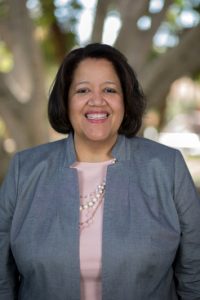The 2020 Diversity Scorecard Shows Progress, but It's More Precarious Than Ever
Minority attorneys have made slow but steady progress in law firms since suffering stunning defeats in the last recession. The global pandemic and the economic turmoil it has left in its wake threaten to reset progress yet again.
May 26, 2020 at 05:30 AM
9 minute read
 Credit: robin.ph/Shutterstock.com
Credit: robin.ph/Shutterstock.com
The past decade has seen a steady, at times sluggish, advancement of minority attorneys in the legal industry. Since 2010, minority attorneys have seen a 3.9% increase in representation among the country's largest firms, according to The American Lawyer's 2020 Diversity Scorecard.
But with the novel coronavirus threatening the financial health of each and every law firm, those who have worked the hardest to build a more diverse legal workforce are raising alarms.
Many fear that, as was the case in the 2008 recession, diversity staff will be the first to go as law firms look to institute austerity measures. History has shown that minority attorneys disproportionately bear the burden of law firm layoffs. Current models projecting a deeper and more protracted downturn are exacerbating these fears.
But there may be reasons for optimism. For one, many see a stronger foundation and infrastructure this time around. And diversity advocates have been clamoring for years for more widespread use of remote-work arrangements; many are hoping that the global shift to work from home has destigmatized the practice and could be beneficial for the long-term diversification of the industry.
The Scorecard
New entrant Berry Appleman & Leiden, a 200-attorney immigration firm, took the No.1 spot on this year's Diversity Scorecard.
The list considers the percentage of minority attorneys in each firm, double-counting partners to emphasize the importance of promoting minority attorneys, and compiles the figures into a uniform score.
Half of the Berry Appleman's attorneys, 49.7%, identify as a racial minority, and 22.7% of the firm's partnership are minority attorneys, according to ALM data. Berry Appleman did not respond to a request for comment.
The second-highest scoring firm—immigration shop Fragomen—reports that 35.1% of its head count is composed of minority attorneys. Fragomen did report a higher share of minority partners than Berry Appleman, 24.4%.
Coming in at No. 3 is Wood Smith Henning & Berman, which jumped 23 places from its spot on last year's scorecard. At No. 4 is White & Case. Rounding out the top five is Kobre & Kim, which climbed seven spots from No. 12 last year.
As in years past, the bulk of the minority representation at the top firms lies in their ranks of Asian and Hispanic attorneys. Black partners are vastly underrepresented among the top firms in the scorecard.
Berry Appleman has zero black partners. And, on average, the partnerships of the top five firms on the Diversity Scorecard are just 0.64% black.
Some firms saw large jumps or drops in their diversity score. Wilson Elser jumped 58 spots, from No. 148 to No. 90, registering the largest year-over-year improvement. Behind Wilson Elser was Goodwin Proctor, which jumped 44 spots to No. 49.
"We are proud of our long-standing commitment to diversity," says Angela Russell, chair of Wilson Elser's diversity and inclusion committee and a member of the firm's executive committee. "Diversity and inclusion are firm foundational values that inform our approaches to hiring, recruiting and client service."
Other firms saw precipitous drops in their ranking. Florida-based Gunster saw the largest year-over-year decline, falling 49 places to No. 114. Haynes and Boone fell 36 places, from No. 43 to No. 79.
In a statement, Gunster shareholder Jorge Guttman said that, although the firm had some of its ethnically diverse attorneys leave for other opportunities, the firm still remains committed to diversity.
"Our 2020 numbers show that we are, similar to prior years, trending upwards regarding our diversity efforts and results," Guttman said. "While 2019 was an anomaly, the firm has made progress in nearly all categories of diversity over the years and continues to strive to do so."
Haynes and Boone did not return a request for comment.
 Caren Ulrich Stacy
Caren Ulrich StacyCaren Ulrich Stacy, founder of Diversity Lab, finds both positives and negatives in the data. Progress is steady, she says, but there are no signs that minority representation is accelerating.
Since 2010, the total share of minority attorneys included in the Diversity Scorecard grew by an average of 0.9% each year. This year did not buck the trend: The total share of minority attorneys grew by 0.9%, from 16.9% to 17.8%.
"When you look at the averages year over year, we're making progress," Ulrich Stacy says. "The not-as-great news is that the progress seems to be similar to past years."
Fears of Progress Stunted
But Ulrich Stacy, like many others, is worried that even this incremental progress is at risk. The specter of the Great Recession, which devastated racial and gender progress in the law, looms as firm after firm announces layoffs, compensation cuts and other austerity measures in response to the global coronavirus-induced economic crisis.
A decade ago, as firms reeled from the financial crisis, minority attorneys left the profession in droves as firms disproportionately shed their attorney ranks. The stratification hurt minority partners in particular: Racial and ethnic diversity in the partnership ranks decreased by 14.3% following the recession. Black representation among Big Law associates returned to pre-recession levels just last year, according to the National Association for Law Placement.
When firms looked to zero-down line items and put in austerity measures to stay afloat, staff and diversity professionals were among the first to go. Offers to incoming first-year associates and summer law students—key components of a firm's diversity pipeline—were withdrawn.
Initial reports that this year's recession may be deeper and further drawn out have stoked fears of a repeat. As for how that will translate into this recession, expert opinions are mixed, with many believing that it's too early to tell.
One reliable indicator is whether firms are still investing and participating in diversity programming.
"You can't invest, reinvest and then invest again in diversity and have long-term progress," Ulrich Stacy says. "You can't decide one year you'll focus on diversity and then decide the other year you won't."
Around 90% of the 100 firms that participated in Diversity Lab's Mansfield 3.0 program registered for the fourth round, according to Ulrich Stacy. The Mansfield program requires that law firms' hiring pools for leadership roles include minority and women candidates.
In addition, 10 new firms have joined onto the pledge, a sign that Ulrich Stacy sees as a positive sign for diversity going forward.
"Hopefully, this is at least one positive indication that firms are staying committed to diversity and inclusion even in tough times," she says.
A Silver Lining
 Michelle Fang
Michelle FangMichelle Fang, chief legal officer of peer-to-peer car-sharing company Turo, bears some more-positive news. None of the firms or companies participating in the Law in Technology Diversity Collaborative have pulled out. The program gives minority and women 1L law students the opportunity to split their time between a law firm and in-house legal department and will now take place virtually. Participating law firms and companies include Baker McKenzie, Cooley, Boies Schiller Flexner, Facebook and eBay.
"Nobody has backed out; nobody has abandoned ship," says Turo, who spearheaded last year's letter from 170 general counsel calling for greater diversity among outside counsel. "To me, that's encouraging."
There are other reasons, experts say, to be more optimistic this time around. For one, the infrastructure and programming around legal diversity is more robust and entrenched than it was at the time of the last recession.
Baker McKenzie, which dropped two spots this year to No. 38, says it will not waiver on its diversity commitments. The firm has no plans to renege on its summer associates and affiliate diversity programs, say Anna Brown, global diversity director, and Marredia Crawford, North America diversity manager.
It helps, they say, that Baker McKenzie had already invested heavily into its diversity programming. Now, as firms everywhere are facing dire economic straits, the firm is in a strong position to maintain its focus.
 Anna Brown
Anna Brown"We didn't have to put new things in place," Brown says. "We already had the foundation, and so now we're reinforcing the foundation that has already been built."
The other encouraging sign is that clients are not wavering in their push for greater in-house and outside counsel diversity. Despite the pandemic, firms will not get a pass if they choose to de-emphasize diversity in the hopes of zeroing out short-term costs.
"Nothing has changed for me," Turo says. "I was just on a call yesterday with other companies that are Mansfield, going through the in-house certification. There didn't seem to me that there was any stepping off the pedal."
And many even see a silver lining in the current state of affairs. The shift en masse to remote work and the broadscale adoption of virtual conferencing brought on by the pandemic shows that firms have the capability and resources to accommodate flexible work arrangements. For years, diversity advocates have pointed to these tools as crucial allies in advancing diversity.
"For those who have said, 'We can't do it,' we know we can now," Brown says.
Flexibility and the widespread use of videoconferencing allows mothers and fathers to better balance work and their families, to avoid having to choose between the two and for attorneys with disabilities to have better access to clients and the courts, advocates say.
"We might come out on the other side of this as a more diverse, more inclusive profession. Even a more fiscally responsible one," says Michelle Coughlin, founder of legal diversity organization MothersEsquire.
Email: [email protected]
Read More
Diversity Scorecard: African American Lawyers Are Being Left Out
Diversity Lab CEO's Recession Advice for Law Firm Leaders? Double Down on Diversity
This content has been archived. It is available through our partners, LexisNexis® and Bloomberg Law.
To view this content, please continue to their sites.
Not a Lexis Subscriber?
Subscribe Now
Not a Bloomberg Law Subscriber?
Subscribe Now
NOT FOR REPRINT
© 2025 ALM Global, LLC, All Rights Reserved. Request academic re-use from www.copyright.com. All other uses, submit a request to [email protected]. For more information visit Asset & Logo Licensing.
You Might Like
View All
Greenberg Traurig Litigation Co-Chair Returning After Three Years as US Attorney
3 minute read
Blank Rome Snags Two Labor and Employment Partners From Stevens & Lee
4 minute read
12-Partner Team 'Surprises' Atlanta Firm’s Leaders With Exit to Launch New Reed Smith Office
4 minute read
After Breakaway From FisherBroyles, Pierson Ferdinand Bills $75M in First Year
5 minute readTrending Stories
- 1Relaxing Penalties on Discovery Noncompliance Allows Criminal Cases to Get Decided on Merit
- 2Reviewing Judge Merchan's Unconditional Discharge
- 3With New Civil Jury Selection Rule, Litigants Should Carefully Weigh Waiver Risks
- 4Young Lawyers Become Old(er) Lawyers
- 5Caught In the In Between: A Legal Roadmap for the Sandwich Generation
Who Got The Work
J. Brugh Lower of Gibbons has entered an appearance for industrial equipment supplier Devco Corporation in a pending trademark infringement lawsuit. The suit, accusing the defendant of selling knock-off Graco products, was filed Dec. 18 in New Jersey District Court by Rivkin Radler on behalf of Graco Inc. and Graco Minnesota. The case, assigned to U.S. District Judge Zahid N. Quraishi, is 3:24-cv-11294, Graco Inc. et al v. Devco Corporation.
Who Got The Work
Rebecca Maller-Stein and Kent A. Yalowitz of Arnold & Porter Kaye Scholer have entered their appearances for Hanaco Venture Capital and its executives, Lior Prosor and David Frankel, in a pending securities lawsuit. The action, filed on Dec. 24 in New York Southern District Court by Zell, Aron & Co. on behalf of Goldeneye Advisors, accuses the defendants of negligently and fraudulently managing the plaintiff's $1 million investment. The case, assigned to U.S. District Judge Vernon S. Broderick, is 1:24-cv-09918, Goldeneye Advisors, LLC v. Hanaco Venture Capital, Ltd. et al.
Who Got The Work
Attorneys from A&O Shearman has stepped in as defense counsel for Toronto-Dominion Bank and other defendants in a pending securities class action. The suit, filed Dec. 11 in New York Southern District Court by Bleichmar Fonti & Auld, accuses the defendants of concealing the bank's 'pervasive' deficiencies in regards to its compliance with the Bank Secrecy Act and the quality of its anti-money laundering controls. The case, assigned to U.S. District Judge Arun Subramanian, is 1:24-cv-09445, Gonzalez v. The Toronto-Dominion Bank et al.
Who Got The Work
Crown Castle International, a Pennsylvania company providing shared communications infrastructure, has turned to Luke D. Wolf of Gordon Rees Scully Mansukhani to fend off a pending breach-of-contract lawsuit. The court action, filed Nov. 25 in Michigan Eastern District Court by Hooper Hathaway PC on behalf of The Town Residences LLC, accuses Crown Castle of failing to transfer approximately $30,000 in utility payments from T-Mobile in breach of a roof-top lease and assignment agreement. The case, assigned to U.S. District Judge Susan K. Declercq, is 2:24-cv-13131, The Town Residences LLC v. T-Mobile US, Inc. et al.
Who Got The Work
Wilfred P. Coronato and Daniel M. Schwartz of McCarter & English have stepped in as defense counsel to Electrolux Home Products Inc. in a pending product liability lawsuit. The court action, filed Nov. 26 in New York Eastern District Court by Poulos Lopiccolo PC and Nagel Rice LLP on behalf of David Stern, alleges that the defendant's refrigerators’ drawers and shelving repeatedly break and fall apart within months after purchase. The case, assigned to U.S. District Judge Joan M. Azrack, is 2:24-cv-08204, Stern v. Electrolux Home Products, Inc.
Featured Firms
Law Offices of Gary Martin Hays & Associates, P.C.
(470) 294-1674
Law Offices of Mark E. Salomone
(857) 444-6468
Smith & Hassler
(713) 739-1250









